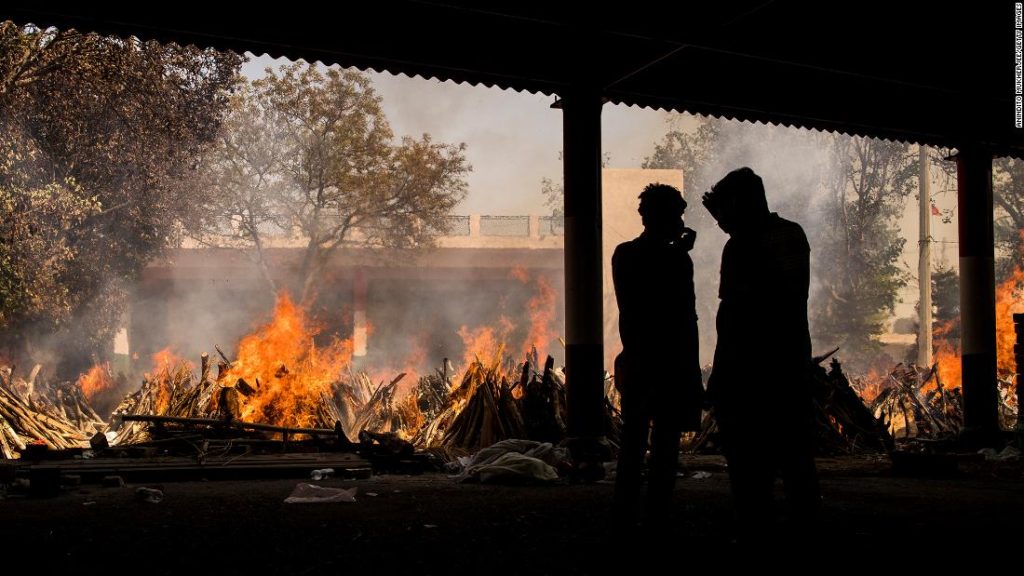He isn’t the only one organizing relief efforts on social media.
On LinkedIn, companies and nonprofit organizations have launched donation initiatives, Ashutosh Gupta, the company’s country manager for India, said in an email. Raheel Khursheed, Twitter’s former head of news in India, said amplifying messages was one way Indians could feel like they were helping.
“It is endearing to watch others help Covid-19 patients on Twitter, but it is also distressing to see how little we can do,” said Khursheed, who now runs a video streaming company. “We don’t know what to do in a pandemic. I don’t have an oxygen cylinder lying at home, so other than amplifying, I can’t do much.”
New Delhi’s intervention has put the social media companies in a difficult position in one of their biggest markets, wedged between their users and a government that recently introduced new rules that could make them liable for not removing controversial posts.
Censorship fears
Twitter declined to reveal the number of Covid-related posts on its platform in India and, when asked about its India-related traffic during this surge, Facebook sent CNN Business a list of seven community groups working on pandemic-related issues.
In a statement last week, India’s Ministry of Electronics and Information Technology said it had asked Twitter, Facebook and others to remove around 100 posts by users it accused of spreading fake or misleading information. The users had created “panic” about the latest Covid-19 wave by “using unrelated, old and out of the context images or visuals, communally sensitive posts and misinformation about Covid-19 protocols,” the ministry said.
A Twitter spokesperson confirmed the company had withheld those tweets in India — but users outside could still see them. Modi is particularly active on Twitter, with over 41 million followers.
The government order angered many users on social media, who criticized New Delhi for focusing on its own image, instead of the crisis.
Pratik Sinha, co-founder of fact-checking website Alt News, said he does not buy the government’s explanation that it was going after fake news. “There are hundreds of thousands of posts with fake news on social media during the pandemic, why take down only these 100 and let the others stay?” he said. “A lot of the tweets [which were removed] were in the form of opinion with no element of misinformation,” he added.
Some of the tweets were posted by opposition politicians, who blamed Modi for the devastating Covid-19 surge.
New uncertainty
“What I am surprised by is that this time Twitter actively removed these tweets — in what seems like an act of censorship — when they had stood up to the government in February,” said Nikhil Pahwa, an internet activist and founder of tech website MediaNama.
“The officer can be personally liable in criminal proceedings relating to hosted content, if the platform fails to satisfy a number of obligations now imposed on social media companies, including an obligation to take down content based on a government order,” Anirudh Rastogi, founder of tech law firm Ikigaw Law, told CNN Business.
Stuck between a rock and a hard place
Twitter isn’t the only company that drew attention last week for taking down posts.
On Wednesday, Facebook blocked posts with #ResignModi for several hours. “We temporarily blocked this hashtag by mistake, not because the Indian government asked us to, and have since restored it,” Facebook said in a statement.
And Pichai remains optimistic about being able to work amicably with authorities in the country. “I think one of India’s strengths is a deeply rooted democratic tradition, based in freedom of expression and allowing for diversity of viewpoints … In the past we’ve been able to work constructively with governments around the world, and we’ll continue that approach here,” said Pichai.
India is one of the largest markets for Big Tech firms, and it would be tricky for them to stand their ground if the Modi government continues to put pressure on them.
For now, most of these companies are tight-lipped about the impact of the new rules on their operations. Experts don’t think they have much choice but to comply, if they’re going to continue to operate in the fast growing market.
“I do hope Twitter stands up for its users and rolls back [their decision to block tweets,]” said Khursheed. “But there is not much wriggle room in terms of compliance because now there is jail time for this sort of stuff.”
“Institutions that protect free speech in the US are way stronger than they are in India.”
You may also like
-
Afghanistan: Civilian casualties hit record high amid US withdrawal, UN says
-
How Taiwan is trying to defend against a cyber ‘World War III’
-
Pandemic travel news this week: Quarantine escapes and airplane disguises
-
Why would anyone trust Brexit Britain again?
-
Black fungus: A second crisis is killing survivors of India’s worst Covid wave

